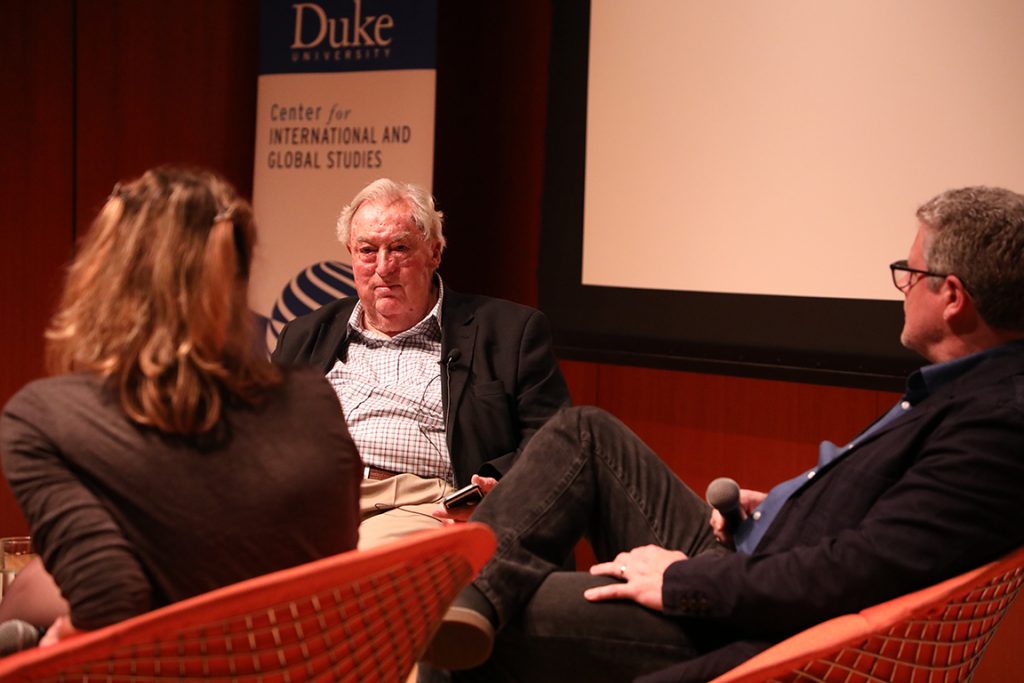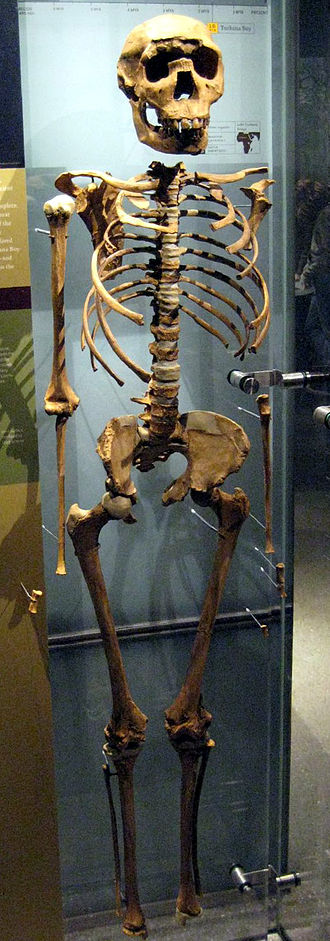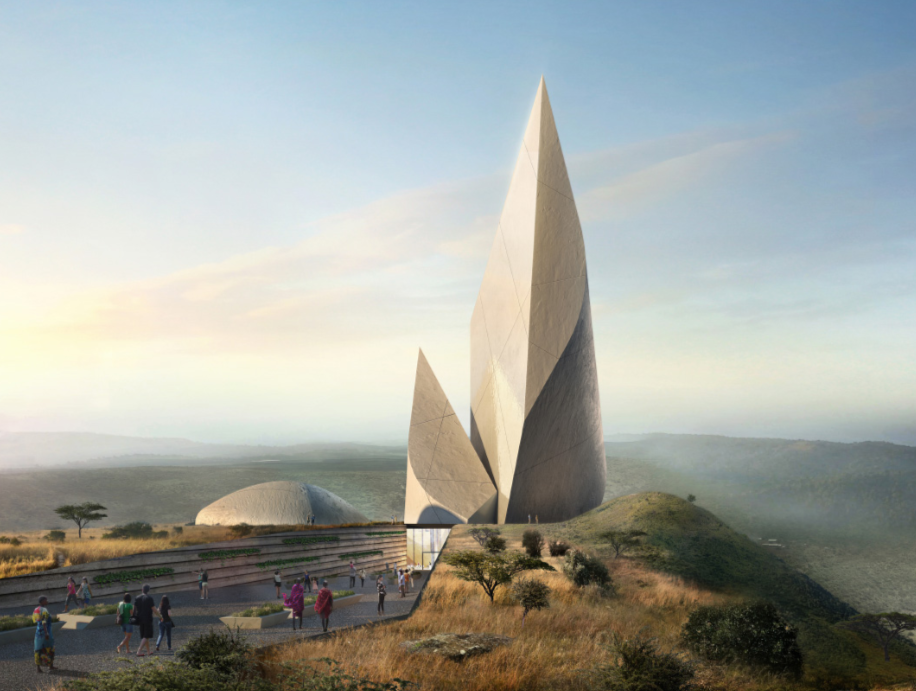Hoping to catch up with an old friend who is a professor at Duke, Richard Leakey accepted an invitation to speak at the university on Oct. 22, though he “gave up public speaking to a large extent many years ago.”

Leakey, age 74, is a world-renowned pioneer in Paleoanthropology – the study of the human fossil record – and is also well-known for his involvement in Kenyan politics and lifelong efforts towards conservation and wildlife protection. Once, he famously burned twelve tons of elephant tusks that were confiscated from poachers, which gathered international attention and helped usher in a global ban on the ivory trade.
Leakey came to paleontology by heredity. He is one of an entire family of Paleo-pioneers. His mother, Mary, discovered a skull in Africa that was dated to 1.75 million years ago (MYA) in 1960. Leakey said that this “electrified interest in the origin story” – that is, the human origin story. When his father, Louis, showed that the “quite clever” ancient tools he had discovered were made around 1.75 MYA, the original idea that human origins began outside of Africa began to change.
Leakey said the British people were hoping that “if we had evolved … let it happen in England” and if not England, then Asia, but this was not to be the case. At first, Louis Leakey was ostracized because of his work and discoveries of human origins in Africa. This helped steer Richard away from academics because of the fights that he saw his father endure.

Successfully achieving his self-described ambition to not finish high school, Richard Leakey was thrown out of school at age 16. Yet today he is accredited with many awards, has written at least eight books, and has advanced the Leakey family legacy of discovery. From 1968 to the present day, he and fellow workers have discovered enormous numbers of fossils of our ancestors along the East and West shores of Lake Turkana in Kenya, which have an age span from 4.5 MYA to our very recent ancestors, which Leakey calls “fossil us.”
Leakey described for the Duke audience in an overflowing auditorium at the Nasher Museum a scenario he facilitated with colleagues and students.
He had taken a group to a camp site to talk about evolution and asked them to perform some tasks. First, they were charged to make tools from stone. The following day, they were led to a freshly slaughtered goat. Leakey told his pupils to butcher the goat and remove the flesh from its carcass.
After several hours watching the individuals try to pull at the goat with their hands to no avail, Leakey suggested that they might use their new stone tools. So they did, but they still could not get through the animal’s tough hide, even with a blade.
He said that during human evolution, our imagination was turned on genetically and this gave early humans the “capability to think of things that weren’t.” There is lots of work to be done studying an ancient period over 3.5 million years that Leakey says lends itself to “early ancestry of speech, imagination, [and] cooperation.” He is hopeful for the knowledge and new understandings that will come from investigation of this period.
“Why not ask someone to help you?” Leakey prompted again, and within an hour, nothing was left of the goat. The exercise demonstrated that though other monkeys and apes use stone, it is the human’s vocal communication and sense of working together that sets us apart, says Leakey.
Leakey’s current project is a “mega-museum” to “cerebrate and celebrate the story of the African origin.” The origin story which his parents first provided crucial evidence for is hugely important to the African continent and to the people of Africa and because we have “desecrated our motherland,” he said. Leakey wants the museum to highlight stages of evolution, genetics, climate, ecology, other species, and extinctions.

Before moving into the panel and Q&A portion of his talk, which was moderated by Duke professors Steven Churchill and Anne Yoder, Leakey prompted the audience to think about climate change, asking why we do not think we need to save ourselves. If we die, then other species go with us.
“Don’t for a minute think that climate change isn’t a real crisis that we’re in together,” Leakey said, earning a round of applause.

Post by Cydney Livingston
